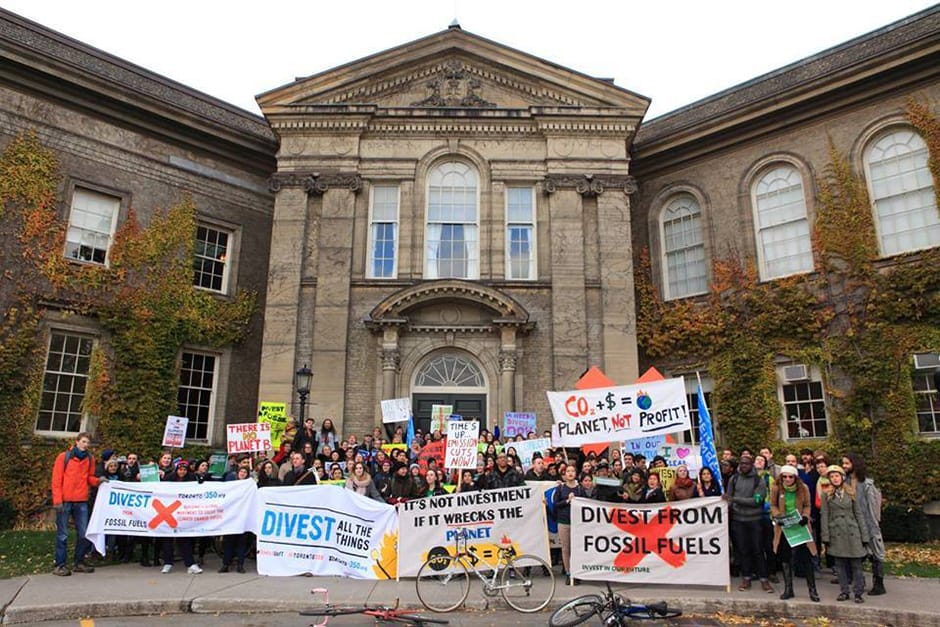“Divest! Divest! Put fossil fuels to rest!” chanted 170 University of Toronto students and alumni in protest against the the university’s current investments in the fossil fuel industry.
At the Fossil Free U of T march on Wednesday, November 12, protesters toting signs marched from the corner of St. George Street and College Street to Robarts library, finally ending up at Simcoe Hall in front of U of T president Meric Gertler’s office.
The march was part of a week of events and activities organized by Toronto350, an environmental group, to bring students and alumni together in the fight against climate change and encourage the university to divest its shares in the fossil fuel industry.
In addition to Wednesday’s march, advocates of the movement engaged in street-canvassing efforts on Tuesday and a post-march bar night on Thursday.
Divestment Action Week was just one of the many efforts made by Toronto350 to raise awareness about the importance of mitigating climate change.
Students and alumni present at Wednesday’s march cited fears of rising global temperatures and greenhouse gas pollution as their main reasons for being there.
Kate Raycraft, a former U of T student, says, “U of T needs to take the lead” on climate action — a statement echoed by many others at the march.
Peter, a former U of T student who declined to give his last name, says that “the sooner big institutions like the University of Toronto divest [from] fossil fuels, the sooner other large institutions will do the same.”
He, like others in attendance, hopes that the university will sell its stock holdings in fossil fuel companies like Chevron and Royal Dutch Shell — leading other postsecondary institutions to follow suit.
At a Governing Council meeting in March, Gertler formally announced an ad-hoc committee to “review the [divestment] petition and accompanying brief, and… consider the University’s response to call for divestment.”
The committee is composed of 11 high-ranking experts from various U of T constituencies and is expected to bring recommendations to the Governing Council within a year of its first official meeting.
If the university agrees to divest its stock holdings in fossil fuel companies, it remains uncertain as to where the University of Toronto Asset Management Corporation (UTAM) will reinvest the money.
Graham Henry, a member of Toronto 350’s executive committee, says that “investment uncertainty is one of the greatest challenges facing this campaign.”
If UTAM recognizes the potential financial benefits of divestment outlined in Toronto350’s divestment brief, Henry adds, the movement could take off.


